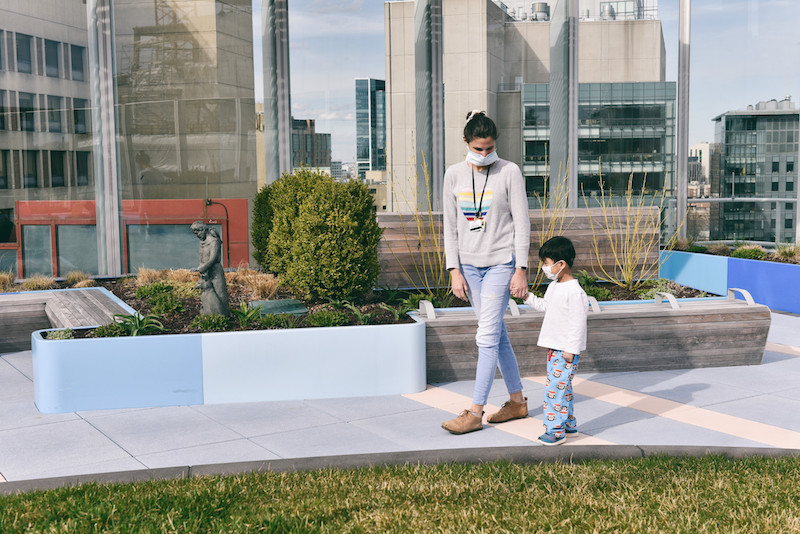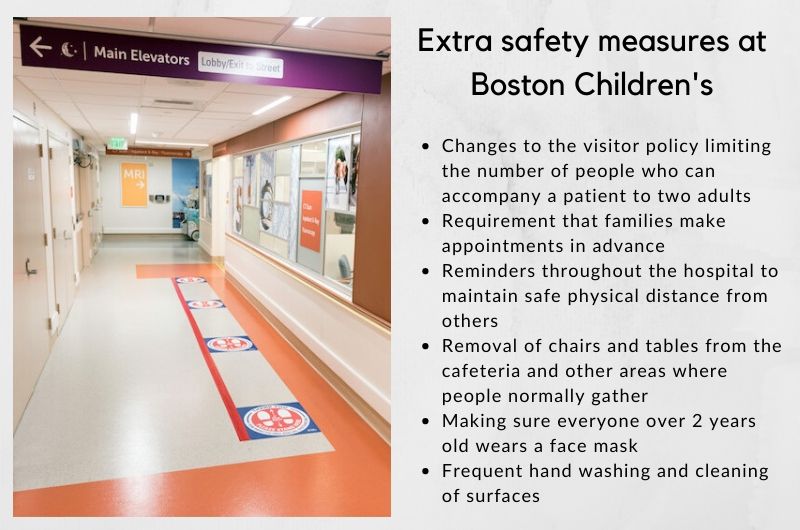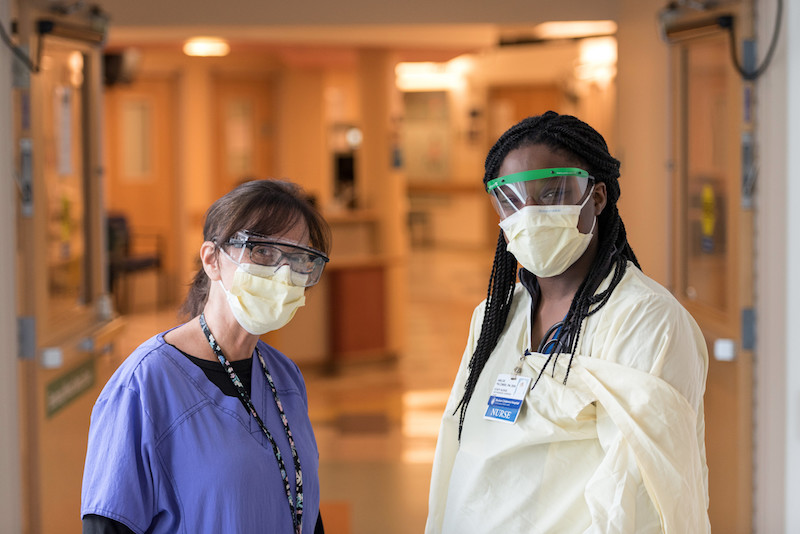How to prepare your child for an outpatient visit

The COVID-19 outbreak has changed many things, including what it’s like for kids to visit Boston Children’s Hospital. The lobby that normally bustles with patients, families, and clinicians is quieter. Security guards ask families if they have an appointment and make sure they know where they’re headed. Visitors are asked about their health and provided with face masks.
While these changes are temporary, they will be around for the foreseeable future. If your child hasn’t been to the hospital since the start of outbreak, the hospital may feel scary to them. Or, after months of hearing about the coronavirus, they may fear getting sick. As a parent, you can make your child’s hospital visit less stressful — for both of you — with some advance preparation.
Start by educating yourself
While honesty is important with children, parents need to be in a good place before they start a conversation. Any feelings of anxiety or uncertainty will probably come through in your voice, body language, and choice of words.
If you’re concerned about an upcoming hospital visit, the Boston Children’s website has extensive information about COVID-19 and how to stay safe. You can also call your child’s clinic and ask how Boston Children’s is protecting patients and families during the pandemic. “We are really going the extra mile to make sure the hospital is safe for patients, families, and everyone who works here,” says child life specialist Angela Franceschi.

Give your child concrete information before their hospital visit
Before you talk with your child, think about how much information they need to hear. “Kids will let you know when they have heard enough,” says Franceschi. She recommends providing simple, concrete information, such as what part of the hospital you’ll be visiting and who you’ll see. And of course, let them know how things will be different when they get there.
For instance, your child will see security guards as soon as they enter the hospital. The guards are there to make sure only families with an appointment, staff, and clinicians enter Boston Children’s. This limits the number of people and makes physical distancing easier. But if a child isn’t prepared, they might find the security guards unnerving.
You might watch this video together ahead of your visit to get an idea of how things will be different at the hospital due to COVID-19.
Practice wearing face masks
If your child is older than 2, they’ll be asked to wear a face mask at the hospital. It’s best if the request to wear a mask doesn’t come out of the blue. Franceschi suggests explaining that face masks help keep germs out of the air so the hospital is safer for everyone. “Most kids are mindful of germs,” she says.
Before your visit, you might show your child pictures of people wearing face masks or practice wearing masks around the house for short periods. You can also suggest a game of putting masks on your child’s dolls and stuffed animals. All of these things can help your child get used to seeing people they know in masks and wearing one themselves. “You can never familiarize kids too much,” says Franceschi.
Leave room for your child to ask questions
Your child may want more information, they may want to talk about their feelings, or they may have heard enough. The question, “Is there anything else you’re wondering about?” gives your child the chance to either keep the conversation going or move on.

Communicate with your child’s care team
If your child is still feeling anxious about their visit, call their provider or child life specialist and let them know. A heads up like this lets your child’s caregivers plan ahead for your child’s visit and provide extra emotional support. If your child melts down on the way to the hospital, alert the person who checks you in. Any information you provide about your child’s mental or emotional state helps your child’s team support them better.
“When it comes to making a child comfortable with their care, parents are our best resource,” says Franceschi.
Family resources
Child Life Services has developed this educational handout to help parents address their children’s concerns: Talking to children about COVID-19
Get more answers about what to expect when you visit Boston Children’s.
Related Posts :
-

Model enables study of age-specific responses to COVID mRNA vaccines in a dish
mRNA vaccines clearly saved lives during the COVID-19 pandemic, but several studies suggest that older people had a somewhat reduced ...
-

New insight into the effects of PPIs in children
Proton-pump inhibitors (PPIs) are frequently prescribed to suppress stomach acid in patients with gastroesophageal reflux disease (GERD). Prescribing rates of ...
-

Creating the next generation of mRNA vaccines
During the COVID-19 pandemic, mRNA vaccines came to the rescue, developed in record time and saving lives worldwide. Researchers in ...
-

Reversing the trend: Easing the mental health boarding crisis in emergency rooms
Anxiety, depression, and suicide attempts have been rising over the past decade, especially among teens, often landing them in emergency ...





